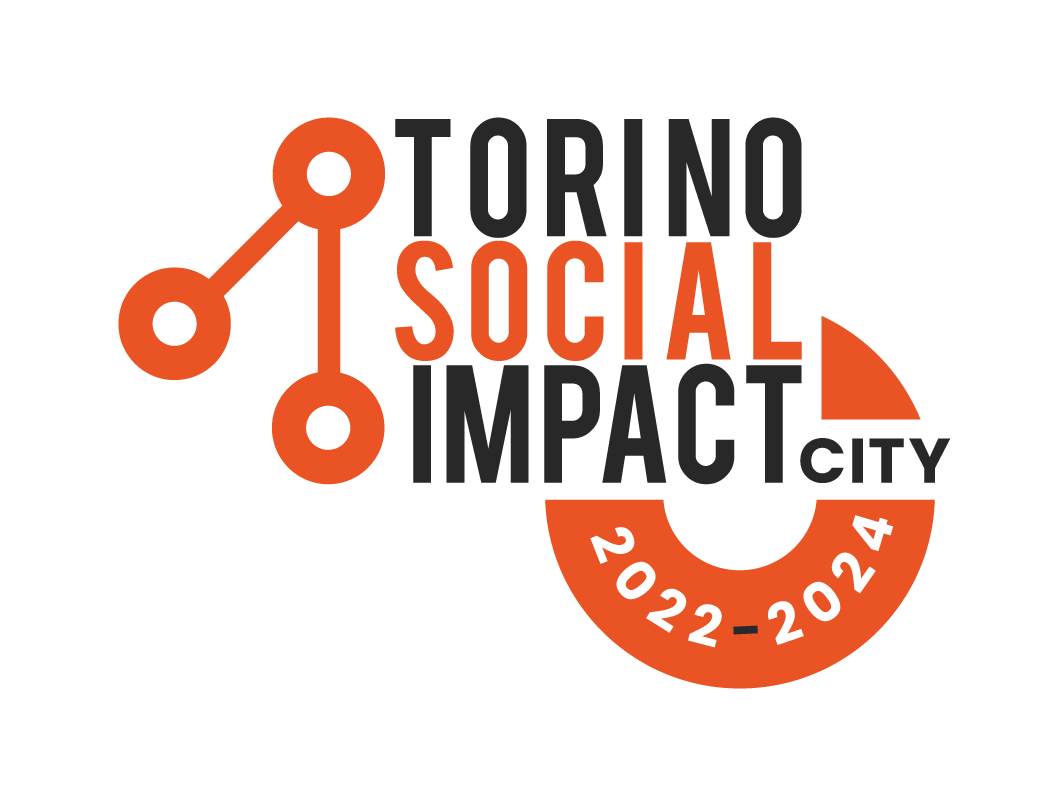Social Value Italia, AIV – Associazione Italiana di Valutazione, Assobenefit, Fondazione Finanza Etica, Forum per la Finanza Sostenibile and Torino Social Impact have sent to the attention of Prime Minister Conte an appeal to ensure that the interventions financed under the Next Generation EU plan include strategies for monitoring, evaluating the implementation and results of […]
Social Value Italia, AIV – Associazione Italiana di Valutazione, Assobenefit, Fondazione Finanza Etica, Forum per la Finanza Sostenibile and Torino Social Impact have sent to the attention of Prime Minister Conte an appeal to ensure that the interventions financed under the Next Generation EU plan include strategies for monitoring, evaluating the implementation and results of the programs, and the social impact of the positive changes actually generated.
The recovery we all hope for will be supported by a powerful injection of financial resources, generated largely through the issuance of public debt. Whether national or European, it means using money today that someone else will have to repay tomorrow. In practice, it means mortgaging the present of future generations.
The promise that we want to obtain through the appeal is that not a single euro will be spent if not to create the foundations of a fairer and more inclusive Italy and Europe, in which everyone can find the conditions for their own realization.
To this extraordinary effort, the signatories argue, we cannot respond by limiting ourselves to traditional accountability mechanisms, based on the certification of expenditure. Instead, it is necessary to adopt more evolved approaches and methodologies, aimed at simplifying procedures and capable of guiding the formulation of programs and examining the analysis of results in terms of response to the real needs of citizens.
For this reason, the convinced request to President Conte is that the investment and spending decisions that will be financed through the new tools put in place by the European Union (Next Generation EU) include strategies for monitoring, evaluating the implementation and results of the programs, and the social impact of positive changes actually generated.
In this sense, every choice, every measure should be accompanied by a clear identification of the expected change objectives, with a rigorous evaluation apparatus that determines the level of achievement, so that the results can be systematized to become lessons learned.
For this reason, in addition to recording outputs, i.e., the first outcomes of activities, it is also necessary to identify outcomes, i.e., the positive changes from which the recipients of policies and interventions have truly benefited, paying particular attention to the weakest segments of society.
What is needed now is a responsible approach, oriented towards a long-term vision. The adoption of an evaluative approach to policies for recovery can be based on the experience already developed in some sectors, adapting and improving it where necessary, on existing skills and on those to be created given the extraordinary nature of the historical moment we are living through. This, if we believe that the crisis can be an opportunity (a ‘policy window’) to stimulate a systemic growth in the way we think about and implement public policies.
The convinced appeal is therefore addressed to the institutions of the country, so that the priorities of policies are adapted to the needs of a society deeply marked by the long recession. Evaluate, understand, report and learn are the pillars of a mature and responsible policy that wants and knows how to honor the debt opened with future generations.
Archivio:
 New legal opinion on true and fair shows company directors how to include sustainability in their financial accounts22 February 2024
New legal opinion on true and fair shows company directors how to include sustainability in their financial accounts22 February 2024 Corporate sustainability due diligence14 December 2023
Corporate sustainability due diligence14 December 2023 Introducing the Impact Taskforce (ITF) State of Play 202312 December 2023
Introducing the Impact Taskforce (ITF) State of Play 202312 December 2023 Coke launches $137.7m sustainability fund15 September 2023
Coke launches $137.7m sustainability fund15 September 2023 Impact Investing UK case study repository15 September 2023
Impact Investing UK case study repository15 September 2023 European Commission adopted a Proposal for non-profit associations13 September 2023
European Commission adopted a Proposal for non-profit associations13 September 2023 Historic moment for the Social and Solidarity Economy: the UN General Assembly adopts a resolution17 June 2023
Historic moment for the Social and Solidarity Economy: the UN General Assembly adopts a resolution17 June 2023 The Commission approves a proposal for Council recommendation for Member States on developing social economy framework conditions17 June 2023
The Commission approves a proposal for Council recommendation for Member States on developing social economy framework conditions17 June 2023 Updates from the ISSB Board for the issuing of global sustainability standards on January 202428 February 2023
Updates from the ISSB Board for the issuing of global sustainability standards on January 202428 February 2023 In 2023, Turin will be the European capital of social and environmental impact finance19 December 2022
In 2023, Turin will be the European capital of social and environmental impact finance19 December 2022 Turn in European social procurement policies16 December 2022
Turn in European social procurement policies16 December 2022 The transition pathway for proximity & social economy15 December 2022
The transition pathway for proximity & social economy15 December 2022 Social Value Matters Europe in October in Turin27 June 2022
Social Value Matters Europe in October in Turin27 June 2022 The Global Citizen Impact Funds02 May 2022
The Global Citizen Impact Funds02 May 2022 Mayors, unions and the International Energy Agency join forces to boost a just energy transition02 May 2022
Mayors, unions and the International Energy Agency join forces to boost a just energy transition02 May 2022 Social impact integrates the new European innovation ecosystems09 February 2022
Social impact integrates the new European innovation ecosystems09 February 2022 EU co-creation of the proximity and social economy ecosystem09 February 2022
EU co-creation of the proximity and social economy ecosystem09 February 2022 The Impact Taskforce: time to deliver07 February 2022
The Impact Taskforce: time to deliver07 February 2022 Italy: ten million for benefit companies10 December 2021
Italy: ten million for benefit companies10 December 2021 Peer2Peer: Amsterdam Impact29 September 2021
Peer2Peer: Amsterdam Impact29 September 2021 EU Social Taxonomy for a sustainable finance27 September 2021
EU Social Taxonomy for a sustainable finance27 September 2021 EVPA position paper on EU Action Plan for the Social Economy20 September 2021
EVPA position paper on EU Action Plan for the Social Economy20 September 2021 Generation Changemaker29 June 2021
Generation Changemaker29 June 2021 Social Stock Exchange, Paris launches an index for the best responsible and sustainable companies22 April 2021
Social Stock Exchange, Paris launches an index for the best responsible and sustainable companies22 April 2021 The Franchising Push for Social Impact31 March 2021
The Franchising Push for Social Impact31 March 2021 Report from the European Commission on Socially responsible public procurement (SRPP) in 27 countries22 March 2021
Report from the European Commission on Socially responsible public procurement (SRPP) in 27 countries22 March 2021 B20 at the start, in the sign of the impact revolution18 February 2021
B20 at the start, in the sign of the impact revolution18 February 2021 Everyone a Changemaker, Ashoka’s mission15 February 2021
Everyone a Changemaker, Ashoka’s mission15 February 2021 The Final Statement of The Economy of Francesco10 December 2020
The Final Statement of The Economy of Francesco10 December 2020 The Gaetano Marzotto Prize looks to social impact with the first edition of the 2030 SI Prize10 December 2020
The Gaetano Marzotto Prize looks to social impact with the first edition of the 2030 SI Prize10 December 2020 B Corp and B Movement Builders11 November 2020
B Corp and B Movement Builders11 November 2020 Road to Mannheim 2021, European Social Economy Summit08 October 2020
Road to Mannheim 2021, European Social Economy Summit08 October 2020 Responsible Banking07 October 2020
Responsible Banking07 October 2020 Cities and Social Impact Bonds05 October 2020
Cities and Social Impact Bonds05 October 2020 GSG leaders call governments for action to put impact at the heart of the Covid-19 economic recovery 30 September 2020
GSG leaders call governments for action to put impact at the heart of the Covid-19 economic recovery 30 September 2020 If not now, then when?22 May 2020
If not now, then when?22 May 2020 Sustainable finance: Commission welcomes deal on an EU-wide classification system for sustainable investments27 February 2020
Sustainable finance: Commission welcomes deal on an EU-wide classification system for sustainable investments27 February 2020 Strong Social Europe for Just Transitions27 February 2020
Strong Social Europe for Just Transitions27 February 2020 The Global Steering Group for Impact Investment18 November 2019
The Global Steering Group for Impact Investment18 November 2019


















